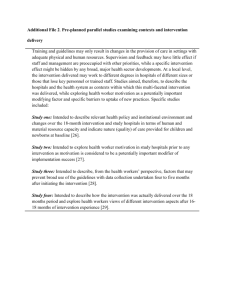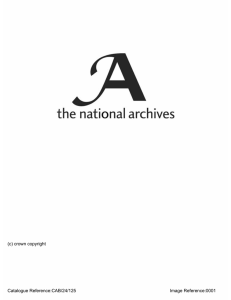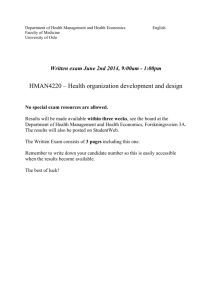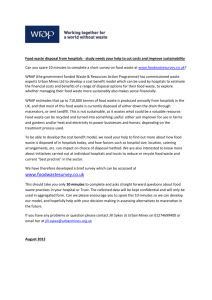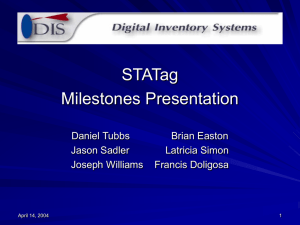Daniel Tubbs Francis Doligosa Brian Easton Jason Sadler
advertisement
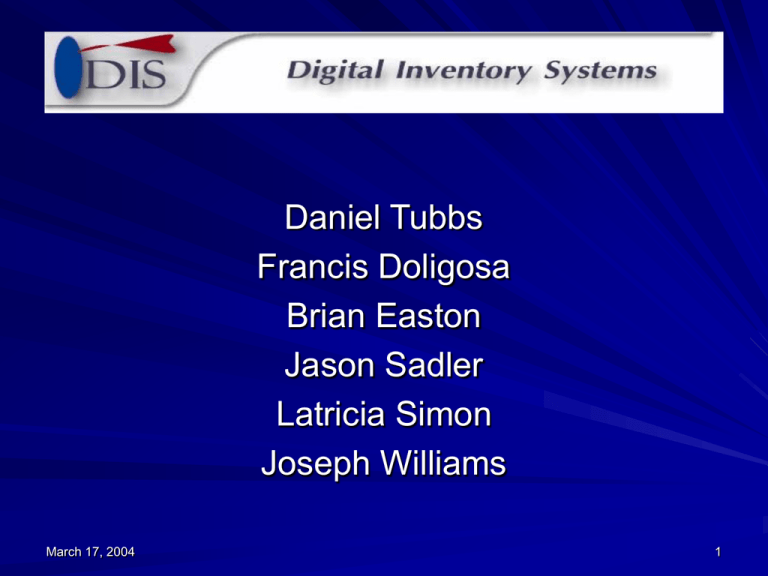
Daniel Tubbs Francis Doligosa Brian Easton Jason Sadler Latricia Simon Joseph Williams March 17, 2004 1 The STATag Solutions for Real-Time Equipment Tracking March 17, 2004 2 Problem Hospitals need to reduce costs to increase profitability – From 1997 to 2001, spending on hospital care increased by $83.6 Billion – Hospital gross margins have declined annually every year since 1997 March 17, 2004 3 Solution The use of Real-Time Equipment Tracking (RTET) with STATags will: Reduce man hours searching for needed equipment Increase staff efficiency Improve equipment utilization March 17, 2004 4 Market Analysis Our target market is US hospitals: Hospitals: 5,794 Total Registered Beds: 975,962 Estimated mobile medical equipment in US: Approximately 5 Million Potential future market: International hospitals March 17, 2004 5 Market Analysis (continued) Hospital equipment is very expensive and highly mobile Equipment tracking is a large problem that causes: – Time consuming equipment searches – Unnecessary equipment purchases Initial target price: < $20.00 per tag March 17, 2004 6 Objective Create a Real-Time Equipment Tracking system that increases staff efficiency and allows hospitals to reduce operating costs March 17, 2004 7 STATag Cons More expensive setup than RFID or Barcode Requires periodic battery replacement and calibration Accuracy degrades slowly over time March 17, 2004 8 STATag Pros Less expensive than Real-Time Locating System Eliminates labor intensive and error prone manual inventories Instantly locates any tagged equipment Detects tag removal, minimizing theft Versatile report generation March 17, 2004 9 STATags will: Use “Dead Reckoning” to determine current location Use network security Self-discover & self-configure network Handle large quantities of equipment March 17, 2004 10 STATags will (continued): Activate Alarms Store historical location and usage data Run without intervention for long periods – Battery lasts 5-7 years – Need calibration only when battery is changed March 17, 2004 11 STATags will not: Prevent theft Collect or transmit personally identifiable health information (covered under HIPAA) Communicate further than 100 feet between STATags March 17, 2004 12 Individual STATag 802.15.4 Module Battery Microcontoller Flash RAM (1MB) March 17, 2004 Usage Module (In use switch) Gyroscopes (Angle Rate Sensors) Tamper Detection Module (Tag Removed Switch) 13 STATag Network ` STATag Web Browser User STATag STATag Network Coordinator DB Server Internal Webserver STATag STATag Database March 17, 2004 14 Technical Issues Component Selection – Size/Cost inverse relationship – Battery life and low power consuming components – Balance between accuracy and cost Simplify design March 17, 2004 15 Resource Issues Need an electrical engineer for final design Outsource manufacturing In-house software development – Data collection/Database – Web based user Interface Startup capital Prototype testing March 17, 2004 16 Management Issues This technology has great potential Conducted interviews that represent: – Hospital staff and hospital management – Civilian and Naval hospitals – Technical project manager with NASA and Lockheed Martin experience Currently pursuing contacts with additional hospitals and Harris Communications March 17, 2004 17 Team Distribution Project Lead Daniel Tubbs Manufacturing Director Personnel Director Marketing & Web Development Research & Development Financial Director Francis Doligosa Joseph Williams Jason Sadler Latricia Simon Brian Easton March 17, 2004 18 Major Risks Interference with hospital monitoring equipment Conflicts with other 2.4 GHz networks 802.15.4 and ZigBee are new standards and therefore there maybe unknown issues March 17, 2004 19 Conclusion Hospitals are doing more business, but making less profit STATag use allows hospitals to lower costs by: – Freeing staff to treat patients – Minimizing unnecessary equipment purchases Hospitals need STATags March 17, 2004 20
